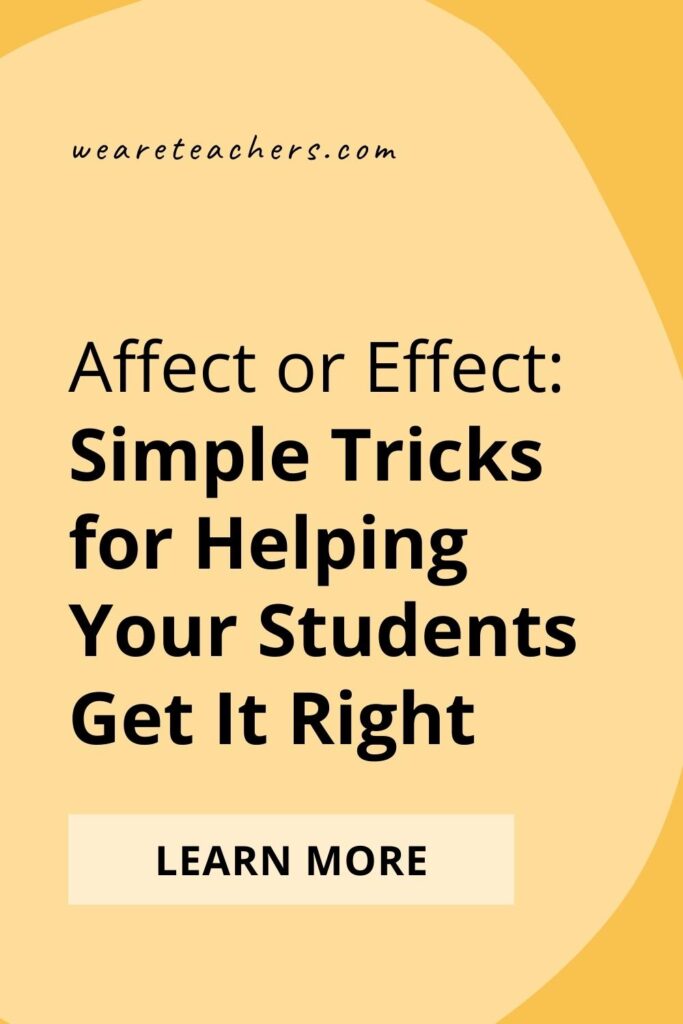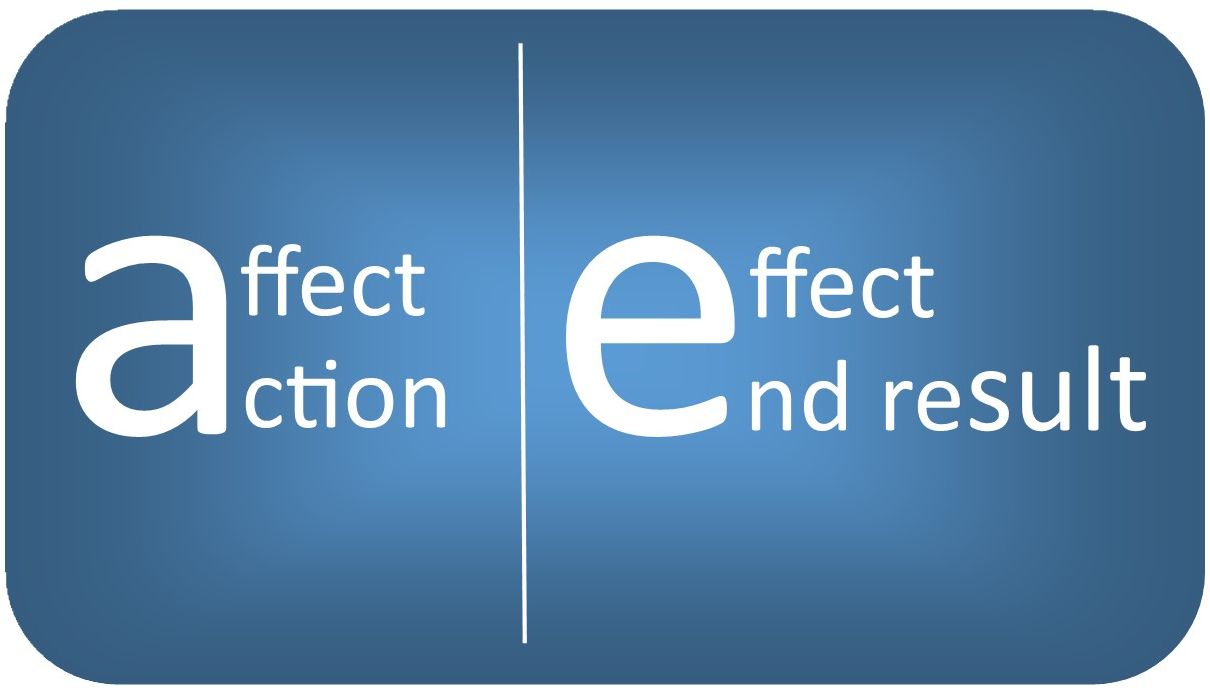Affect or effect. These two similar-sounding words trip up English speakers all the time. In fact, the definition of “affect” is “to have an effect on something.” How confusing! Fortunately, there are some simple tricks for getting this one right pretty much every time.
Affect or Effect: In a Nutshell
When it comes right down to it, you can almost always make the right choice by remembering that “affect” is usually an action word, or verb. If the word you need is performing the action in the sentence, choose “affect.”
- The rainstorm affected the group’s picnic plans.
- Tara’s choice affects everyone positively.
On the other hand, “effect” is most commonly used as a noun. Look for “a,” “an,” or “the” before the word—that indicates a noun.
- The rainstorm had an effect on the group’s picnic plans.
- Tara’s choice has a positive effect on everyone.
An easy way to remember this trick is that “affect” and “action” both start with an A. “Effect” and “end result” (which is the definition of “effect”) start with an E.
Remember RAVEN
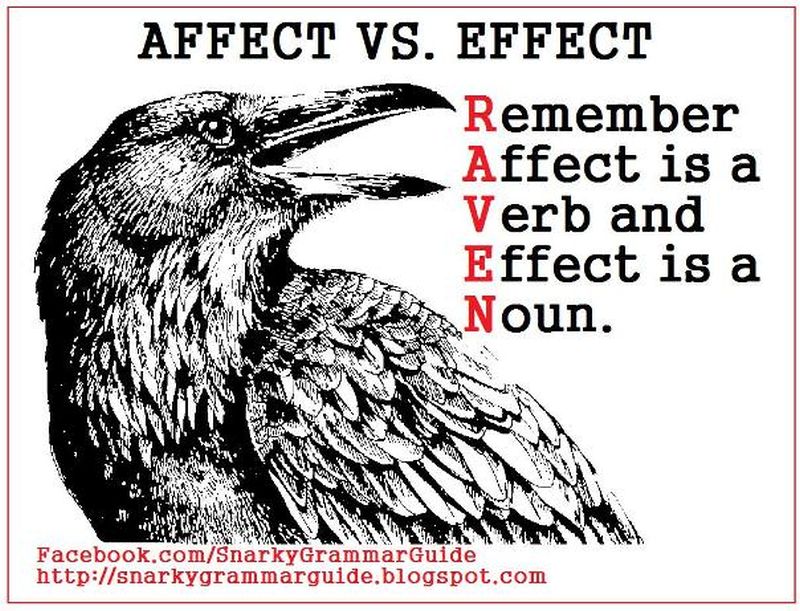
Source: Snarky Grammar Guide
Here’s another mnemonic people use to remember “affect” vs. “effect.” Think of the word RAVEN: Remember Affect = Verb, Effect = Noun.
Affect and Effect Exceptions
Just when you think you’ve got everything figured out, along come the usual exceptions to the rule. Yes, that’s right: Sometimes “affect” is a noun and “effect” is a verb. Happily, these uses are not common, but truly skilled writers and speakers will need to know how to use them correctly.
When “effect” is a verb
You can use “effect” as a verb meaning “to accomplish” or “to bring about.” It’s often used with the word “change,” though it doesn’t have to be.
- The new law will effect change that’s been needed for a long time.
- Her hard work effected big gains for the company’s bottom line.
Check to see if the usage makes sense by substituting “accomplish” or “bring about.”
- The new law will accomplish change that’s been needed for a long time.
- Her hard work brought about big gains for the company’s bottom line.
When “affect” is a noun
This usage is mainly found in psychology, and it means “observable emotional response.” You’ll rarely see this one in regular use, but it does pop up from time to time. In this case, it’s also pronounced differently, with the accent on the first syllable: AFF-ect.
- Despite the grisly details, Jordan’s affect was stoic and calm.
To see if the word “affect” makes sense as a noun in a sentence, try substituting the word “response.”
- Despite the grisly details, Jordan’s response was stoic and calm.
TIP: If you’re unsure about using either of these terms correctly, then just don’t bother. There are plenty of other ways to get your meaning across without using these words!
How To Teach “Affect or Effect”
Help your students master this tricky grammar mystery with these activities and exercises.
Watch a video
This video includes the RAVEN tip and uses relatable examples to help students make sense of it all.
We like that this video covers the exceptions to the rule too. Plus, funny monsters!
Try a worksheet
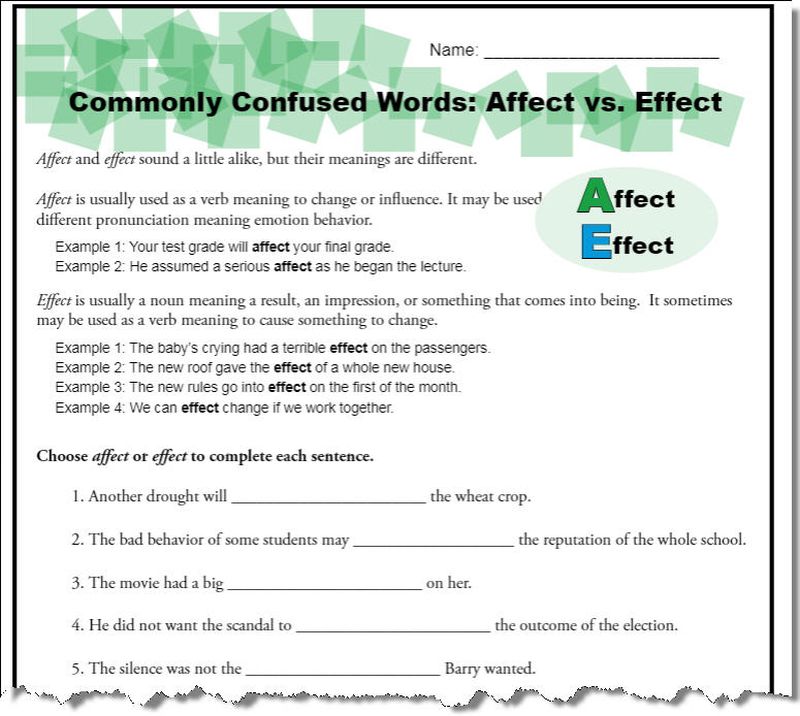
Worksheets might not be exciting, but they’re a great way to practice.
Learn more: K12 Reader
Play BOOM!
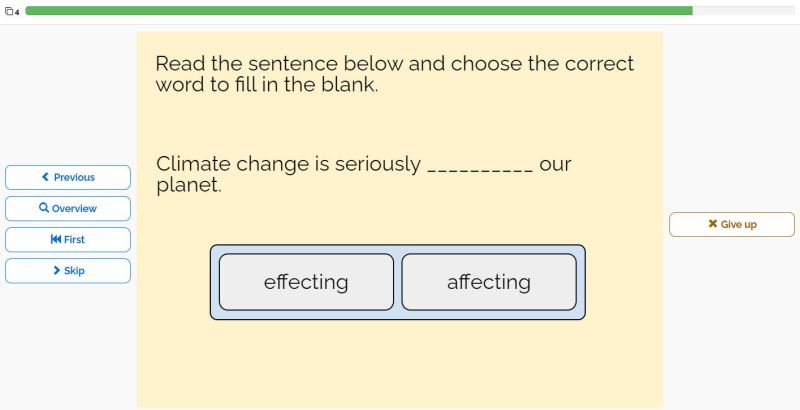
Buy this set of BOOM cards on Teachers Pay Teachers. You can assign it for homework or use it as a group in class for practice.
Learn more: Charlene Tess on Teachers Pay Teachers
What are your favorite tips for teaching “affect vs. effect”? Come share on the WeAreTeachers HELPLINE group on Facebook.
Plus, check out 15 Hands-On Grammar Games That Make Learning Fun!
